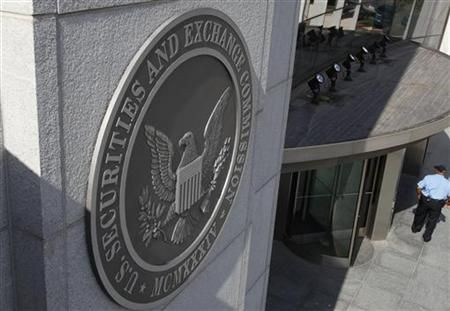Obama 2016 Budget: President's Proposal Would Bolster Key Dodd-Frank Regulators

President Obama’s proposed 2016 budget includes a windfall for Wall Street watchdogs. The White House requested $1.7 billion for the U.S. Securities and Exchange Commission (SEC), an increase of 15 percent, and the U.S. Commodity Futures Trading Commission (CFTC), which oversees the $700 trillion swaps market, would see its budget jump up 29 percent, to $322 million. The combined request is the largest Obama has made for Wall Street’s top cops.
The two agencies sit at the center of the regulatory regime erected in 2010 by the Dodd-Frank Wall Street Reform and Consumer Protection Act, which promised to curb the kind of questionable Wall Street practices that culminated in the 2008 financial crisis. The White House casts the increased funding as a continuation of the Obama administration’s financial reforms.
Since Dodd-Frank became law, the SEC has regularly begged Congress for additional funding to meet its expanded mandates. In its last budgetary request, the SEC called for a $300 million increase over its 2014 budget, citing a need for “significant additional resources to keep pace with the growing size and complexity of the securities markets and the agency’s broad responsibilities.”
Last spring, SEC Chairwoman Mary Jo White appeared before a House committee to push for a bigger war chest, citing the “extreme challenge presented by our current level of funding.” At present staffing, for example, the SEC is unable to conduct annual examinations of over 90 percent of registered investment advisers -- financial professionals who manage everything from individual accounts to public pensions.
The need is particularly acute, White argued, given that 75 percent of such examinations turn up deficiencies. And as many as 40 percent of the exams find that investment advisers are exposing clients to harm or significant risk, White testified.
The president’s proposal would allow the SEC to hire hundreds more examiners, along with agents devoted to investigating big banks and keeping up with technological innovations such as high-frequency trading.
Karen Barr, president and CEO of the Investment Adviser Association, told International Business Times she was “pleased that the administration is planning to dedicate significant additional resources to the SEC’s oversight of investment advisers,” though she stressed the need for the SEC to better allocate its resources.
The CFTC has also found itself pleading before Congress for increased funding. In May of last year, then-acting Chairman Mark Wetjen warned a Senate subcommittee that “at current funding levels, the Commission is unable to adequately fulfill the mission given to it by Congress.” While the value of derivatives under the CFTC’s watch had increased from $124 trillion to $223 trillion since 2010, the CFTC’s budget had barely moved.
Obama’s proposed funding for the CFTC represents a sizeable $42 million increase over his 2015 request of $280 million.
The two agencies have at times found themselves a target of partisan squabbles. Past budgets approved by the GOP-dominated House of Representatives allotted the agencies far less than what they requested. In the compromise spending bill passed last December, Democrats agreed to a loosening of Dodd-Frank rules in return for an SEC funding increase to $1.5 billion.
Boosting the SEC’s funding wouldn’t budge the deficit, however. The agency pays for itself through the fees and fines it levies on financial firms. The SEC collected over $4 billion in penalties and disgorgements in fiscal year 2014. Funds in excess of its $1.5 billion budget flowed mostly into the U.S. Treasury. The White House budget calls for legislation allowing the CFTC to operate under a similar funding model.
The president’s proposals, however, will meet a Republican-dominated Congress resistant to increased funding for regulators and eager to roll back Dodd-Frank.
© Copyright IBTimes 2025. All rights reserved.





















